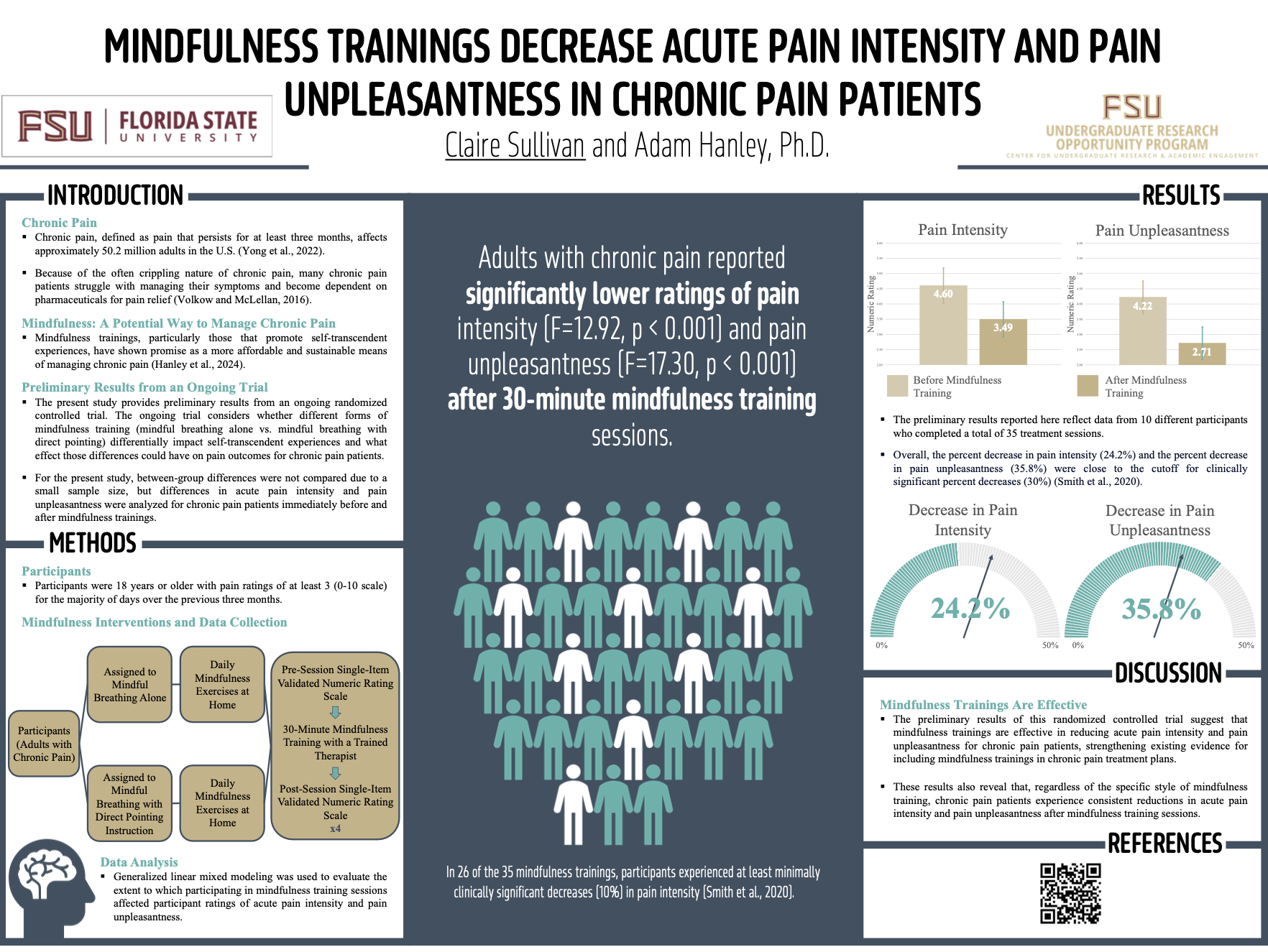Research Symposium
25th annual Undergraduate Research Symposium, April 1, 2025
Claire Sullivan Poster Session 3: 1:45 pm - 2:45 pm/ Poster #65

BIO
My name is Claire Sullivan, and I am a first year Honors student majoring in Community Patient Care at FSU. Through working as a UROP mentee in Dr. Hanley’s lab, I have learned about the potential of mind-body interventions to help manage chronic pain. This experience has broadened my understanding of the research process and has strengthened my appreciation for integrative medicine and its role in improving patient well-being.
Mindfulness Trainings Decrease Acute Pain Intensity and Pain Unpleasantness in Chronic Pain Patients
Authors: Claire Sullivan, Adam HanleyStudent Major: Community Patient Care
Mentor: Adam Hanley
Mentor's Department: College of Nursing Mentor's College: College of Nursing Co-Presenters:
Abstract
Chronic pain is a surprisingly common but potentially debilitating condition. Though approximately 50.2 million American adults suffer from chronic pain, chronic pain patients often struggle to manage their symptoms and are generally unaware of non-pharmacologic pain management options (Yong et al., 2022). Emerging evidence indicates mindfulness could be an accessible and cost-effective way to treat chronic pain (Hanley et al., 2024), and self-transcendent experiences during mindfulness training appear to confer important therapeutic value. The present study provides preliminary analyses from an ongoing randomized controlled trial evaluating whether different styles of mindfulness practice (mindful breathing alone vs. mindful breathing with direct pointing) differentially impact self-transcendent experiences in the service of improving pain-related outcomes. Here we only report on changes in acute pain intensity and pain unpleasantness - each measured with a single-item, validated numeric rating scale - from immediately before to immediately after 35, 30-minute mindfulness training sessions involving 10 different adults with chronic pain. Due to the small sample size, we did not compare the two different styles of mindfulness practice. Generalized linear mixed modeling revealed that mindfulness significantly decreased both pain intensity (T1: 4.60 ± 1.16, T2: 3.49 ± 1.16, p < 0.001) and pain unpleasantness (T1: 4.22 ± 1.07, T2: 2.71 ± 1.07, p < 0.001) from before to after mindfulness training. These preliminary results indicate that brief mindfulness training can reliably decrease acute pain among adults with chronic pain regardless of the specific mindfulness practice instructions.
Keywords: Chronic Pain, Mindfulness, Integrative Medicine, Psychology

